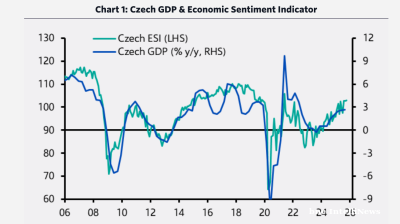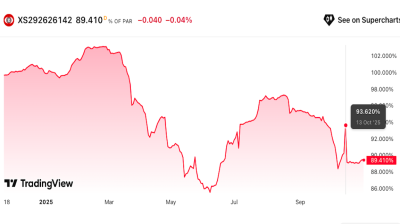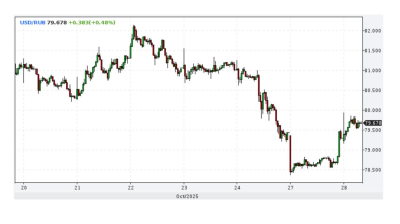Hungary, Slovakia and Czechia performed badly in the latest international EY Global Fraud Survey which measures the perceived amount of bribery and corruption in 53 countries. Fellow Visegrad Four member Poland fared far better, placing 36th overall.
Hungary finished 12th worst overall, with 66% of respondents saying they believed corruption is widespread in their country, up 8 percentage points (pp) from 2012. A similar Transparency International report in February showed Hungary to be the most corrupt EU country after Bulgaria.
Slovakia and Czechia, didn't fare much better in the EY survey, placing 13th and 15th place, respectively; 8 out of 10 Slovak managers said they were ready to fight for contracts unfairly compared to 6 out of 10 Czechs managers.
Czechia reported the greatest improvement compared to 2012, with only 56% of respondents saying corruption is widespread in the country, compared to 80% six years ago. But that's still well above the average of the 53 countries surveyed (38%).
That said, the EY survey ranking may dispel some myths about corruption in Europe on both sides of the former Iron Curtain. It shows Poland, for example, as doing better than the UK and on par with France. Although Eastern Europe still has significantly worse results than its Western neighbours, it shows that with good policies, the gap can be significantly narrowed.
“Although fraud and corruption remain more prevalent in emerging markets, a significant minority of respondents reported widespread corruption in developed markets,” the report reads, noting that fraud and corruption have not declined globally in the past two years.

Czechia is cited by the report as a successful story, together with Romania (28th place - 34%). “Increase in enforcement in recent years. New regulation improving transparency such as the Act on Criminal Liability of Corporations,” read bullet points in the report list as achievements in Czechia.
Slovakia is especially interesting as regards another question: “Which, if any, of the following, do you feel can be justified if they help a business survive an economic downturn?” The answer ‘cash payments’ was given by 44% of Slovak respondents. This made Slovakia the third worst in all countries.
In Hungary and Poland, only 4% of people answered the same, whereas in Czechia it was 12%, the same as for Bulgaria. For comparison, in Romania, it was 8% and in Ukraine 16%.
A third very interesting question concerned using bribery to win contracts. Whereas Hungary and Czechia had higher numbers, 18%, Poland and Slovakia recorded 12%.
Another question concerned fraud in the sectors. Surprisingly low percentage of respondents voice their concern. In Czechia, it was 6%, in Hungary and Slovakia 4%, whereas in Poland 10%. However, in Germany, the figure was much higher – 18%.
What might seem as good news is actually not. “A low number of revealed frauds in Czech and Slovak companies is not a proof of higher integrity. Quite contrary, it shows that our companies don’t know how to detect frauds,” said Tomas Kafka, Slovak and Czech coordinator of the survey.
The 15th EY survey was conducted by the Ipsos MORI global research agency, which from October 2017 to January 2018 conducted 2,550 telephone or personal interviews with managers of selected large corporations in 53 countries of the world in the local language.
The top executives responsible for the fight against fraud, chiefly financial and business directors, heads of the Legal Departments and Heads of Internal Audit, were included in the survey.
Data

Czech growth accelerates as domestic demand-side pressure builds
The Czech economy delivered an unexpected acceleration in the third quarter, marking a clear shift from its earlier position as a regional underperformer to one of Central and Eastern Europe’s fastest-growing economies.

Eurobonds of Istanbul-listed Zorlu units offer attractive yields amid rating downgrades and no default expectation
Debut paper currently offering 14-15% yield.

Ruble strengthens as sanctioned oil companies repatriate cash
The Russian ruble strengthened after the Trump administration imposed oil sanctions on Russia’s leading oil companies, extending a rally that began after the Biden administration imposed oil sanctions on Russia in January.

Russia's central bank cuts rates by 50bp to 16.5%
The Central Bank of Russia (CBR) cut rates by 50bp on October 24 to 16.5% in an effort to boost flagging growth despite fears of a revival of inflationary pressure due to an upcoming two percentage point hike in the planned VAT rates.




